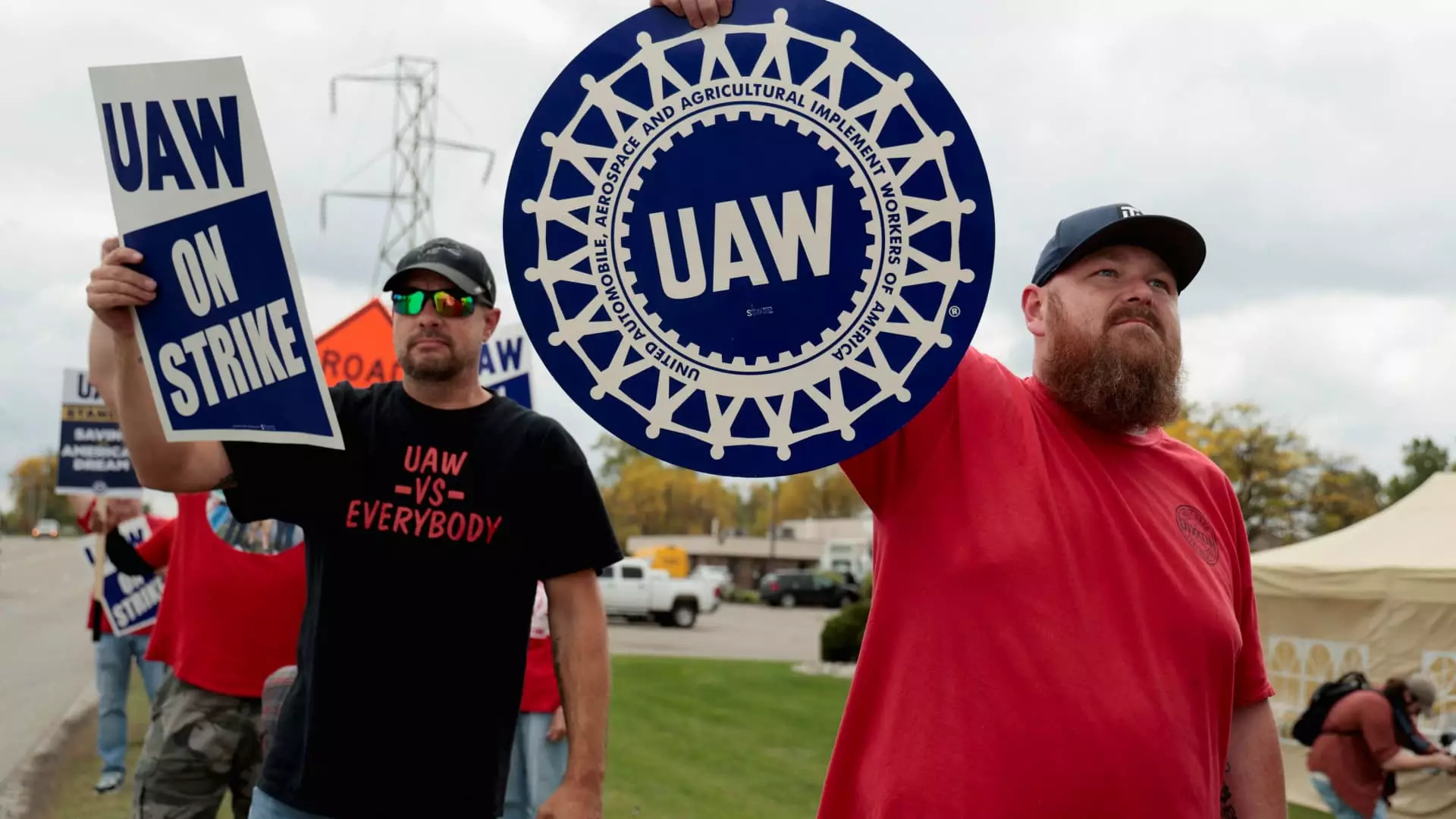A recent joint statement by Republican governors in six states highlighted their concerns regarding the United Auto Workers’ (UAW) push to organize automotive factories in the South. The governors of Alabama, Georgia, Mississippi, South Carolina, Tennessee, and Texas expressed apprehension about the potential consequences of unionization, suggesting it could result in layoffs and diminish future investments in the region. They claimed that the unionization efforts could jeopardize the jobs that have become integral to the automotive manufacturing industry in their states.
The UAW’s organizing drive, spearheaded by President Shawn Fain, aims to target 13 automakers operating in southern states and beyond. The ongoing vote among Volkswagen workers in Chattanooga, Tennessee, to decide whether to join the UAW is part of this broader initiative. The UAW is also in the process of organizing a vote among Mercedes-Benz workers in Alabama. The proposed move towards unionization has stirred controversy and prompted a response from state leaders who fear the potential long-term implications.
The statement issued by the governors pointed out that following previous negotiations with Detroit automakers, there have been instances of layoffs and buyout offers extended to both salaried and hourly workers. Automakers have been implementing cost-cutting measures to redirect funds towards the development of electric vehicles and to brace for anticipated market downturns. Stellantis, resulting from the merger of Fiat Chrysler and PSA Groupe in January 2021, has been at the forefront of these cost-saving initiatives, leading to the reduction of temporary or supplemental workers.
Stellantis has reportedly laid off over 1,000 supplemental workers this year as part of its efforts to streamline manufacturing operations amid challenging market conditions. Ford and GM have also offered voluntary buyouts to employees and announced layoffs, primarily attributed to adjustments in production needs and facility closures. For example, GM’s decision to end vehicle production at certain plants in Michigan led to the displacement of 1,300 workers. While Ford facilitated the transfer of some laid-off employees to other facilities, the overall impact on the workforce remains a point of concern.
The Republican governors underscored their commitment to fostering job growth in their states and voiced skepticism about the implications of unionization on the existing automotive workforce. They argued that while short-term gains might be achieved through union contracts, the long-term effects could be detrimental to job stability and investment opportunities. The collaborative effort among state leaders to address these concerns reflects a shared commitment to safeguarding the economic interests of their respective states amidst ongoing labor negotiations.
The discourse surrounding unionization efforts in the Southern automotive sector underscores the complexities inherent in balancing the interests of labor, management, and government stakeholders. The ongoing developments in labor organizing, particularly in the automotive industry, demand a nuanced approach that considers the diverse perspectives and concerns of all parties involved. Ultimately, finding common ground and sustainable solutions will be essential to ensuring the continued growth and prosperity of the automotive manufacturing sector in the South.

Leave a Reply